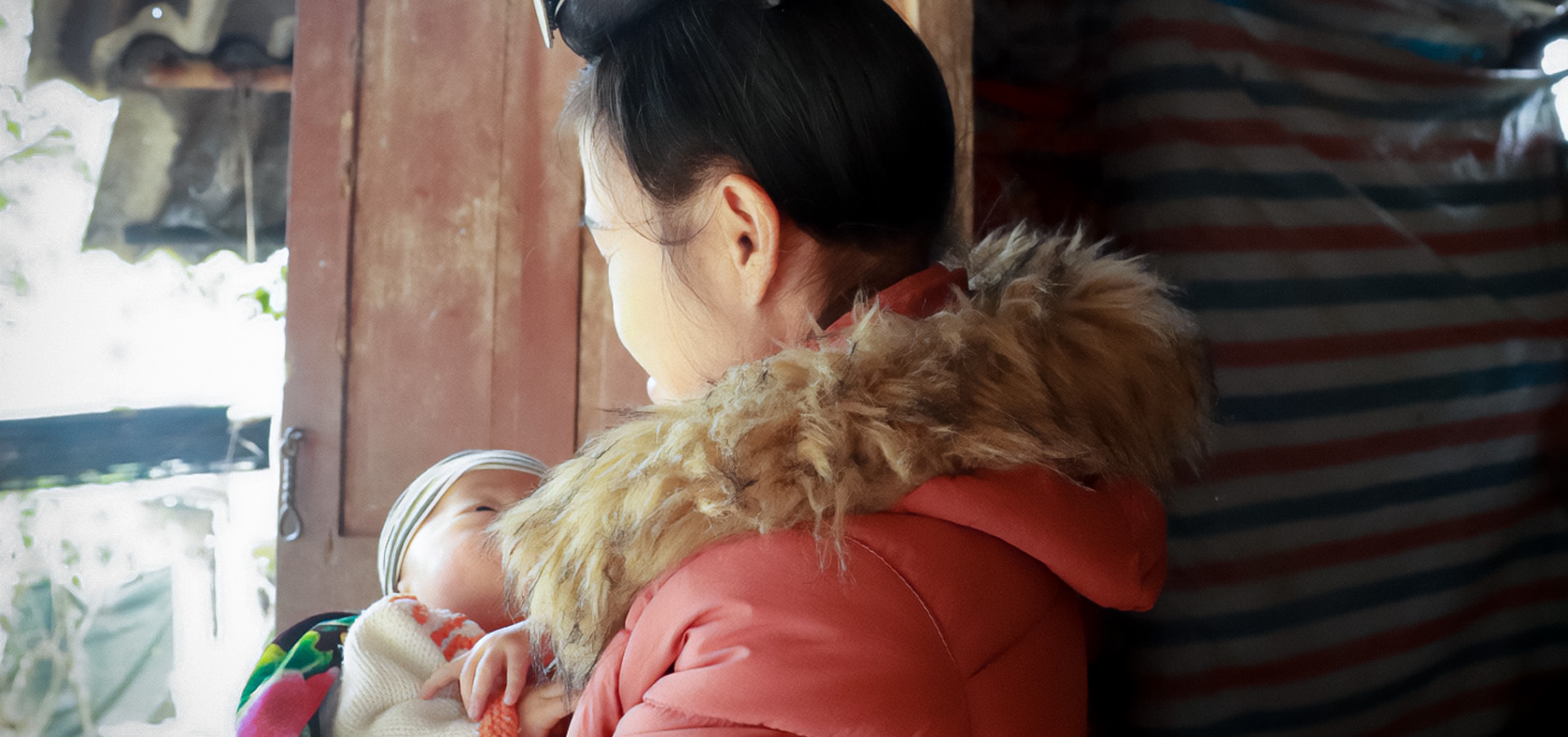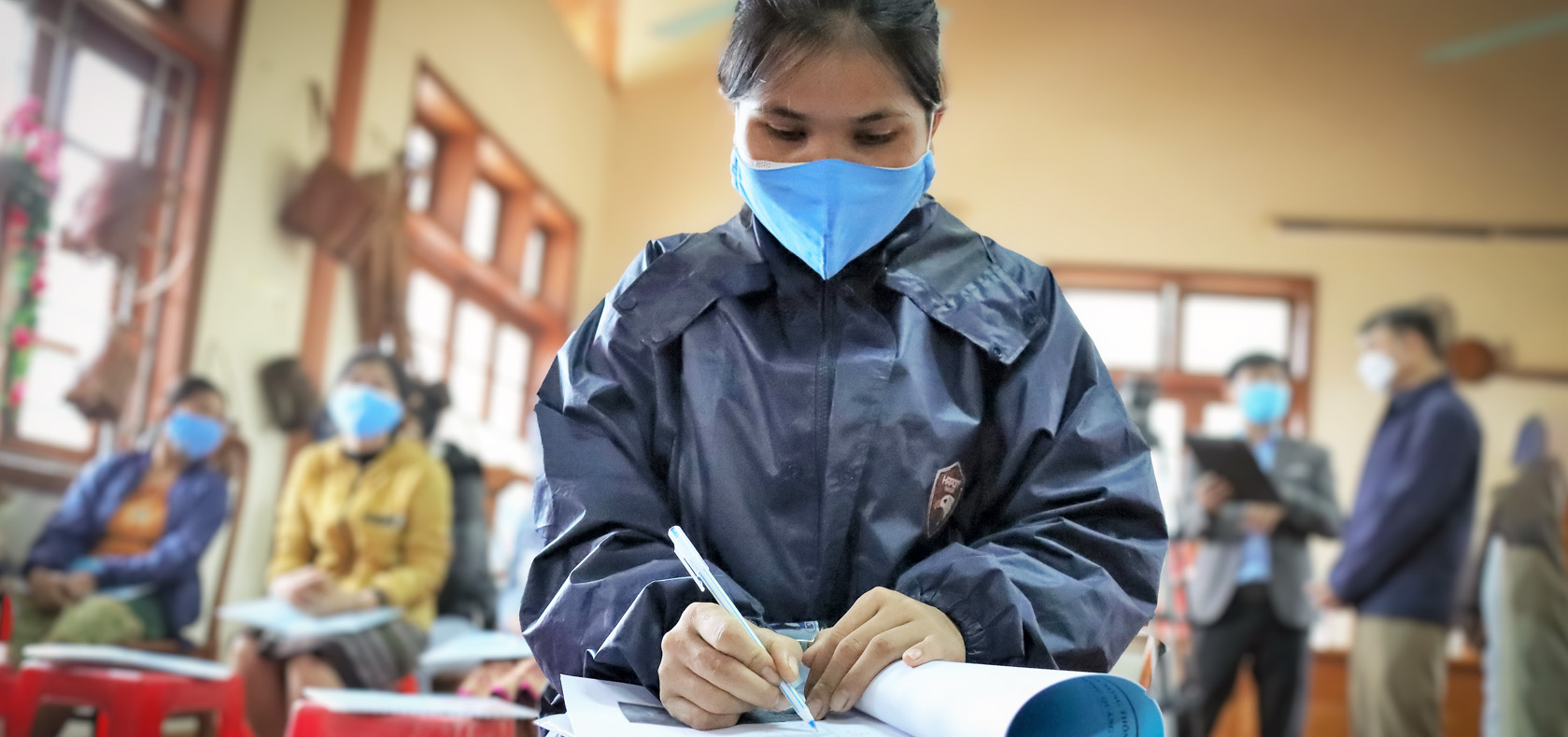UN Women cash grants help women with HIV, ethnic minority women rebuild from COVID-19 losses
Date:
Author: Thao Hoang
Dien Bien City, Viet Nam — A total of 220 women living with HIV in four Vietnamese provinces now have a chance to rebuild their livelihoods with cash handouts from UN Women after losing their incomes due to the COVID-19 pandemic.
Similar handouts, of VND 4 million (USD 170) each, also are creating brighter futures for 44 ethnic minority women in another province who had to return home after losing their migrant jobs because of the pandemic.
UNAIDS funded the grants UN Women and Vietnam Women Union gave on 16 December 2021 to the women living with HIV in Dien Bien and Son La provinces in the northwest, and Nghe An and Da Nang provinces in central Viet Nam. The women’s union also will train them on how to use the money for agriculture. Most of the women are farmers and seasonal workers.
One of the beneficiaries in Dien Bien City was a 37-year-old woman of the Thai ethnic minority who lives in a poor, mountainous area. Her husband died of AIDS several years ago.
She makes a living loading goods onto buses; she said that because of the pandemic, she now hardly earns VND 60,000 (USD 3) a day. Also, without the money and resources to fortify her barn, the woman lost all chickens to thieves early this year.

“I could not sleep well for many nights. If the lockdown and social distancing happen again, I will not be able to feed myself,” she said.
The woman said she is considering using the money to join friends in raising pigs and chickens.
“Women living with HIV face many difficulties during COVID-19 with few opportunities to access economic opportunities,” said Do Thi Thu Thuy, chairperson of Dien Bien Women’s Union. “Therefore, this financial support is essential to reduce their vulnerabilities and strengthen their resilience.
“Women and families can buy seedlings, fertilizer, chickens or piglets and other productive tools in time for the upcoming farming season. This will mitigate their suffering from the pandemic.”
The Embassy of Ireland funded the cash grants that UN Women and the National Agricultural Extension Center gave on 15 November 2021 to 44 ethnic minority women who head households totaling about 200 people in Dak Rong district, in the central province of Quang Tri. The agricultural centre also trained the women on how to use the money for agriculture.
All 44 ethnic minority women had gone south to work in areas near Ho Chi Minh City, then had to return home after losing their jobs because of the pandemic.
They included Ho Thi Thep, 32, of the Van Kieu ethnic minority group in Dak Rong, a poor, rural and mountainous area.
Unable to find work at home, in March 2021 she left her 9-year-old son with his grandparents and went to Binh Duong province, an industrial hub, to work at a garment factory.
But in June, the factory shut as it lost orders due to the pandemic, and Thep journeyed almost 700 kilometers (more than 500 miles) back to Dak Rong by motorbike.
“Spending over three months jobless in Binh Duong, I could not continue to feed myself,” she said. “When the authorities ended the social distancing policies, I spent my last coins to go back home. Now I plant corn in my parents’ fields, but it’s not enough to feed my family.”

Thep said the cash grant “helped my family a lot in the difficult time”. She said she planned to buy 50 chickens and feed, now that the agricultural centre has taught her how to keep chickens disease-free.